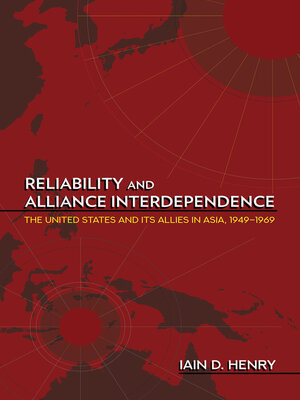Reliability and Alliance Interdependence
ebook ∣ The United States and Its Allies in Asia, 1949–1969 · Cornell Studies in Security Affairs
By Iain D. Henry

Sign up to save your library
With an OverDrive account, you can save your favorite libraries for at-a-glance information about availability. Find out more about OverDrive accounts.
Find this title in Libby, the library reading app by OverDrive.



Search for a digital library with this title
Title found at these libraries:
| Library Name | Distance |
|---|---|
| Loading... |
In Reliability and Alliance Interdependence, Iain D. Henry argues for a more sophisticated approach to alliance politics and ideas of interdependence.
It is often assumed that if the United States failed to defend an ally, then this disloyalty would instantly and irrevocably damage US alliances across the globe. Henry proposes that such damage is by no means inevitable and that predictions of disaster are dangerously simplistic. If other allies fear the risks of military escalation more than the consequences of the United States abandoning an ally, then they will welcome, encourage, and even praise such an instance of disloyalty. It is also often assumed that alliance interdependence only constrains US policy options, but Henry shows how the United States can manipulate interdependence to set an example of what constitutes acceptable allied behavior.
Using declassified documents, Henry explores five case studies involving US alliances with South Korea, Japan, the Republic of China, the Philippines, Australia, and New Zealand. Reliability and Alliance Interdependence makes a substantial contribution to our understanding of how America's alliances in Asia function as an interdependent system.







